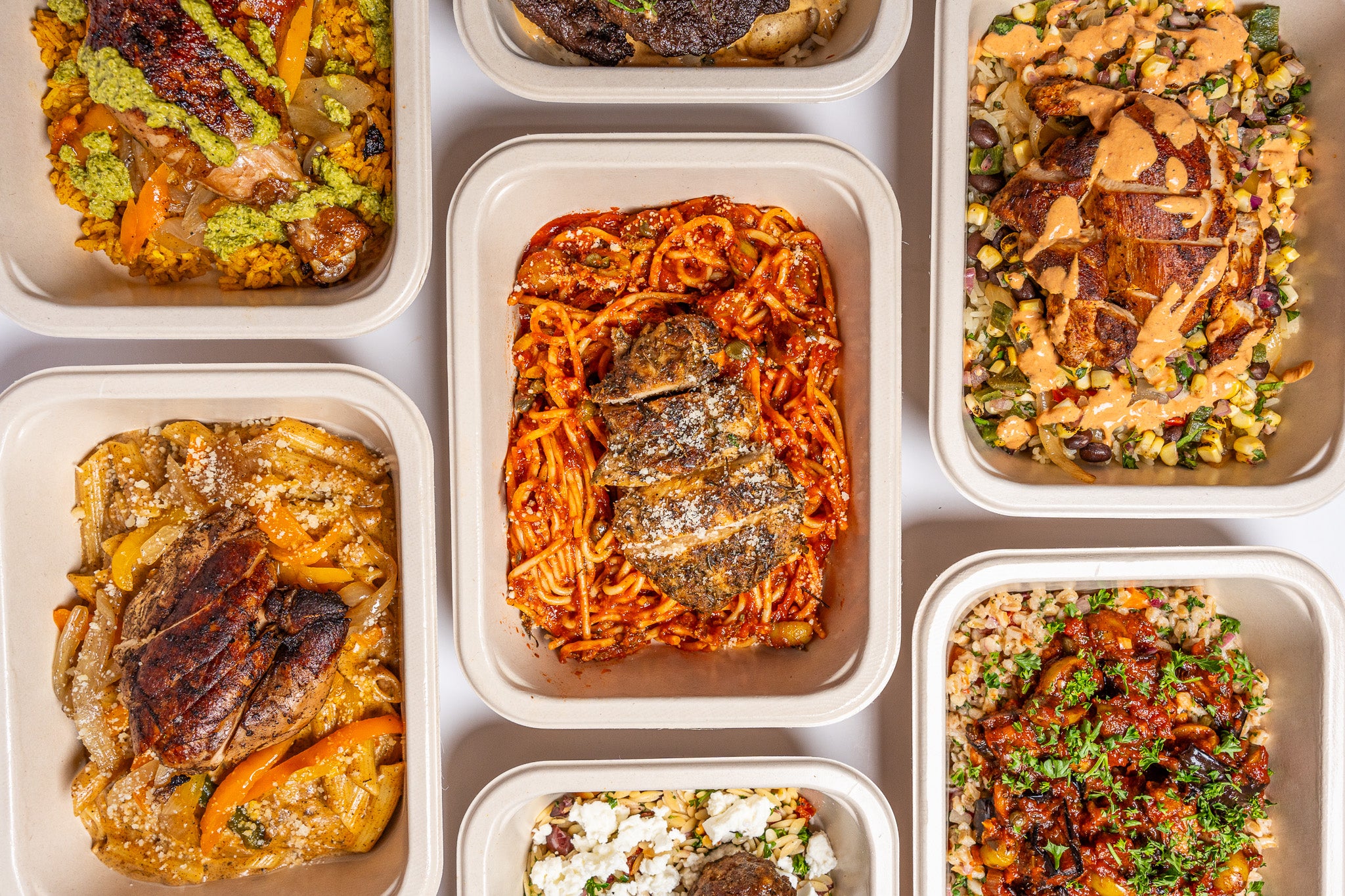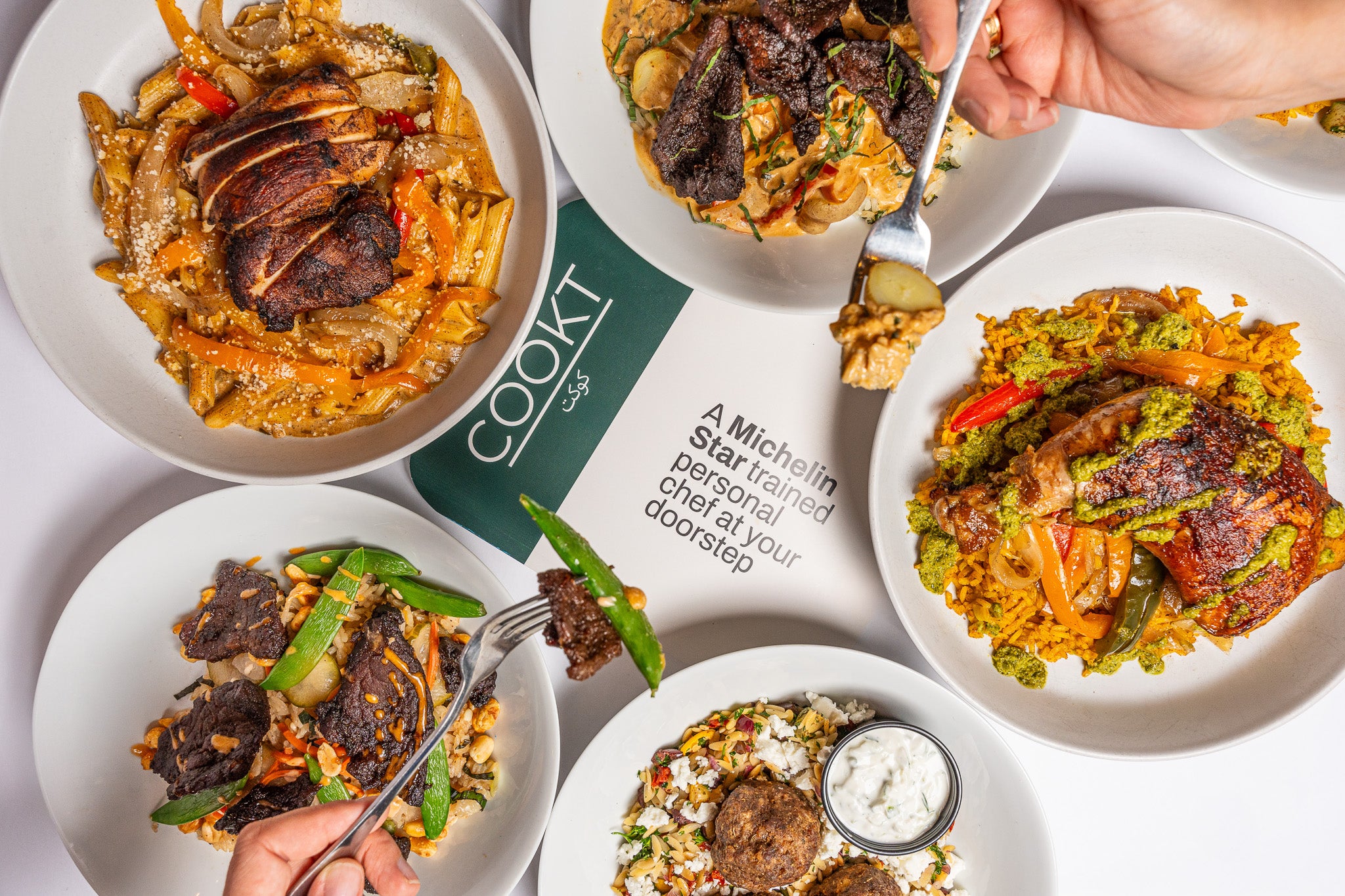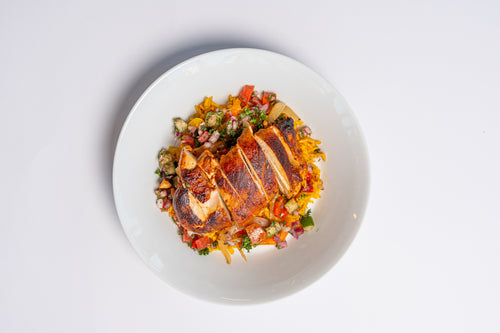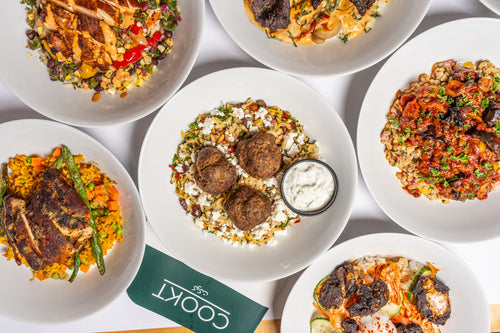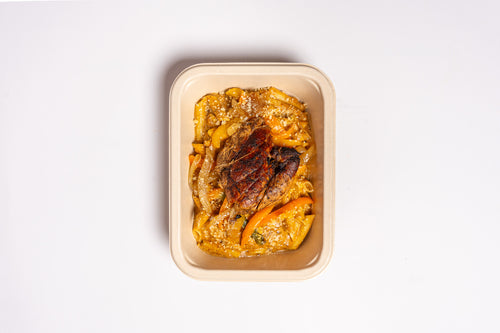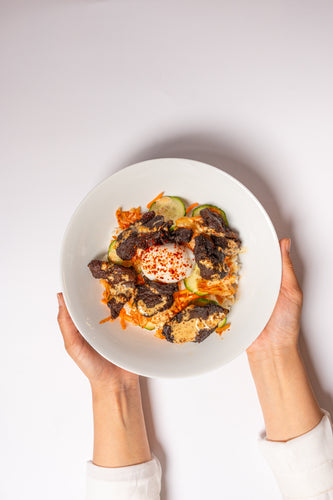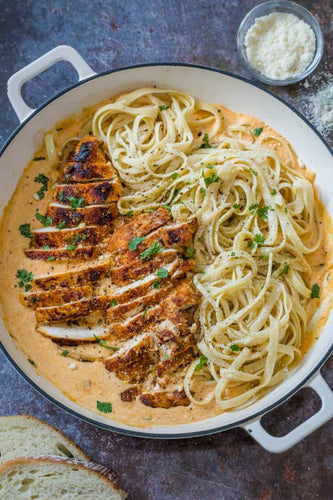
Debunking Myths About Halal Food in America
Busting Myths About Halal Food in the US
Have you ever looked at a food item and wondered what "halal" truly means? You're not the only one. There is a lot of confusion out there, and some of it is quite wrong. It's time to set the record straight, whether you're Muslim or just interested in food ethics. Today, we're going to bust some common fallacies about halal cuisine in the US. We'll also show you how businesses like COOKT, a Zabihah-certified personal chef meal delivery service, are making tasty, ethical halal meals simpler to get than ever.
Myth 1: Halal Food Is Just for Muslims
Many people think that halal cuisine is exclusive for Muslims, which is not true. That is not true at all. In Islamic law, "halal" means "permissible" or "allowed." However, the ideas behind halal—ethical sourcing, cleanliness, and compassion—are appealing to everyone. Halal-certified food is sometimes checked more carefully than regular food to make sure it is clean and that animals are treated well. You may think of it as a way to show why higher-quality standards are good for everyone.
Halal meals in the US are for a wide range of people, including health-conscious eaters, foodies who want to try new flavors from around the world, and anyone who values honesty. That's why sites like COOKT advertise their Zabihah-certified meals to a wide range of people. You don't have to be Muslim to enjoy a Honey Harissa Chicken Bowl or Greek Meatballs with Orzo. Halal food is for everyone.
Myth 2: Halal slaughter is cruel and inhumane
People constantly saying that halal slaughter is brutal, which is not true. Some people think it incorporates old, painful practices. In fact, halal rules say that the animal should suffer as little as possible at every stage. A sharp knife, a quick cut, and blood draining right away, all while saying "Bismillah Allahu Akbar" ("In the name of Allah, the Greatest"), make sure the process is quick and clean.
In fact, according to U.S. law under the Humane Slaughter Act, methods used in American slaughter facilities often involve stunning the animal first—making the actual halal cut even more humane. According to a reputable Islamic expert, meat from the United States is deemed halal as long as the name of Allah is spoken and the blood is drained. So halal isn't basic; it's based on respect and kindness.
Myth 3: Halal Food is Unsafe or Unhygienic
Some people who don't believe in halal cuisine go so far as to say that it's dirtier or less safe than conventional food. That is the exact opposite of what it should be. To get halal certification, you have to follow tight hygiene rules, such as keeping processing areas clean, having slaughter procedures examined, and having clear supply chains. If done right, it can be safer than normal methods.
For example, halal rules say that blood must be completely drained. Less blood left over means a lesser chance of infection. Studies show that blood can hold hazardous bacteria if it isn't managed properly. On the other hand, meat that isn't treated according to these regulations may hold onto more fluids, which could make it go bad faster. So, not only do meals from Zabihah-certified businesses like COOKT taste good, but they are also based on hygiene.
Myth 4: All Halal Food Tastes Religiously Distinct
Another wrong idea? That halal cuisine has a "different" taste, maybe more exotic or holy. Halal is really more about how food is made than how it tastes. The taste of a dish comes from the ingredients, how it is cooked, and the spices used, not the religious certification of the meat.
Look at COOKT's selection of international flavors: None of these foods, like Jamaican Rasta Pasta, Korean Bulgogi Beef, or Nigerian Suya Chicken, taste "religious." They taste great because of the spices, the way they are made, and how fresh they are. All of COOKT's meals are Zabihah halal, but they don't taste like Islamic food. Instead, they taste like Caribbean comfort food, Korean barbecue, or African street food.
Myth 5: It’s Expensive and Niche
Some people also think that halal food is only for small groups of people and is too pricey. Halal has become popular, nevertheless, because more and more people want certified, ethical, and international meals. You can find it in grocery store aisles, food trucks, fancy restaurants, and meal delivery businesses that use technology.
Meal delivery services like COOKT go against the assumption that halal is a high-end or exclusive choice. Their prices are similar to those of other good meal packages and services. COOKT offers ethical, halal meals easy to find and inexpensive for a wide range of people, not just a religious minority. Their programs emphasize on low-carb, high-protein, and international cuisine.
Myth 6: Halal Certification Supports Extremism
This is one of the most harmful falsehoods. Some people think that buying halal goods helps extremist groups. That is completely wrong. Getting halal certification is only about making sure that food fits religious and moral requirements, not about giving money to groups or ideas. Certified organizations follow stringent audits and third‑party reviews to ensure integrity.
Why It Matters and How COOKT Can Help?
It's not merely an intellectual exercise to learn about halal. It's about eating well in a world with many cultures. We build trust amongst groups and make informed decisions as consumers when we clear up falsehoods regarding halal meat and food.
Here's where COOKT comes in with a modern solution: a Zabihah-certified meal service that brings gourmet quality, ethical standards, and cuisines from around the world directly to your door. It goes against the idea that halal is hard to find or only for a small group of people. COOKT welcomes everyone, regardless of faith, to enjoy healthy, tasty, and ethically sourced meals with its world-cuisine bowls, which include Jamaican, Korean, and Nigerian dishes.
The Bottom Line
Let's go over it again: halal food is for everyone and is based on cleanliness and morality, not rituals that change the taste. It's not old-fashioned or too religious; it's modern, humane, and good for your health. It doesn't pay for extremism, and it's not any more expensive than other good cuisine. Services like COOKT show that halal food can be fancy, modern, and for everyone.
When you see "Zabihah Halal" on a menu or label, you should feel good about it. Be sure to know that your choice helps animals, keeps kitchens clean, and is open and honest. And hey, if you ever want a tasty, macro-balanced halal meal from around the world without leaving your house, COOKT has your back.
Want to know more? Go to their website, look at the menu, and maybe start with anything that sounds good to you. The halal journey is more than simply regulations; it's a call to eat mindfully and with flavor.


